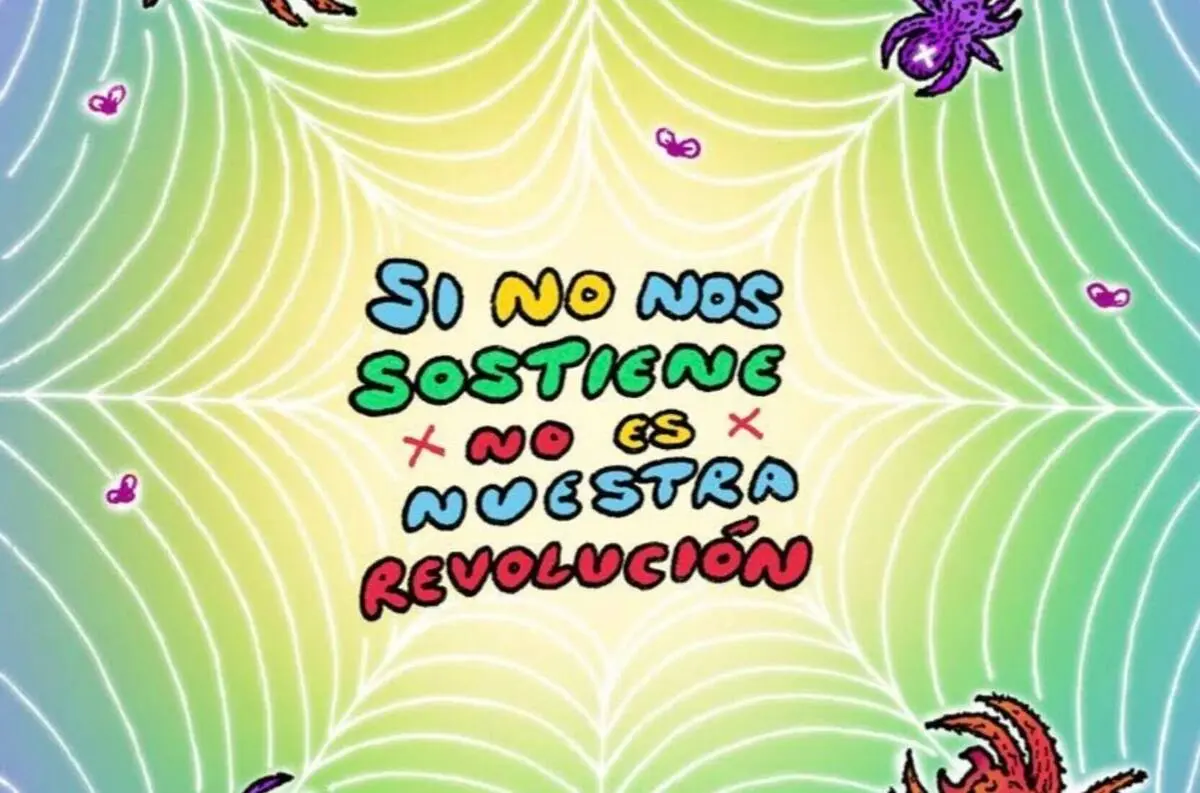Economía, crisis, violencias. Crisis que no iniciaron hace dos años con la pandemia, violencias que se profundizan con las crisis. Piezas de un mismo sistema. Le preguntamos a Flora Partenio*, ¿cómo desde la economía feminista se analiza el sistema económico desigual, pandémico y violento?
Economía feminista alude a dos mundos, el mundo de las finanzas, el mundo de la deuda, el mundo productivo de la vida cotidiana y de alguna manera la economía feminista trata de juntar esos dos mundos. Lo que pasa en los hogares, lo que pasa en las casas, tiene mucho que ver con lo que pasa en las altas finanzas y en los procesos de endeudamiento, porque justamente hay vínculos que van tejiendo lazos para entender que el mundo de la producción y el mundo de la reproducción están totalmente vinculados”.
Flora Partenio
Esta mirada no es nueva, se viene tejiendo desde los años 70 con debates como los de Mariarosa Dalla Costa y Silvia Federici en torno al trabajo doméstico. Ellas planteaban que era fundamental reconocer las tareas domésticas, las de los cuidados y las de la crianza, como trabajo no pagado y como parte de la explotación de las mujeres.
La economía feminista nos impulsa a preguntarnos sobre qué cuerpos se han delegado los trabajos de los cuidados, nos interpela a cuestionar lo que parece normal en el sistema capitalista y patriarcal. Es una herramienta que nos permite exigir nuestros derechos y salir a la calle.
Economía resuena a crisis y generalmente la crisis se asocia con la expansión de las desigualdades y las formas de violencias económicas.
“¿A qué aludimos con violencias económicas? ¿Tiene que ver, por ejemplo, con la falta del acceso a la vivienda o al hábitat? ¿Tiene que ver con la exclusión del mercado laboral o el hecho de que yo no consiga empleo? ¿Cómo impacta en nuestros cuerpos eso? ¿Cómo impacta en nuestro día a día, en nuestras relaciones, en nuestra posibilidad de sostenernos cotidianamente? Pensar la crisis desde una lente feminista implica explorar cómo las formas de violencias económicas se vinculan con otras violencias como, por ejemplo, las violencias patriarcales, las machistas, las coloniales, las patrimoniales” (Flora Partenio).
Interpelar la agenda de recuperación económica
Interpelar la agenda de recuperación económica desde los feminismos implica interpelar una agenda desde la sostenibilidad de la vida. Esta es la mayor apuesta de la economía feminista; encontrar salida a esta crisis pandémica, a esta economía pandémica. Partenio agrega:
- La salida tiene que ser una salida colectiva y feminista.
- Las compañeras que la pasaron peor con la pandemia tienen que estar en la primera línea de las reivindicaciones y la agenda: las compañeras migrantes, el trabajo precario, las compañeras que están trabajando en casas particulares, la agenda de los derechos laborales, estar alerta a países que quieren entrar en discusión sobre reforma laboral.
La justicia económica para las mujeres no se trata sólo de integrarlas dentro de determinado modelo económico, sino también de mejorar el control que ellas tienen sobre los recursos económicos, el acceso al trabajo decente y el control sobre su propio tiempo”.
Desafiar el poder corporativo, AWID 2016.
Apuesta para la sostenibilidad desde los activismos
Existe una complejísima diversidad de contextos y variantes que se conectan por hilos aparentemente invisibles. Tenemos que encontrar estrategias que nos permitan aterrizar nuestra relación con el dinero, la filantropía y otros recursos. No perdamos de vista que la lucha es una carrera larga, por eso necesitamos apostar a la sostenibilidad feminista.
La sostenibilidad feminista nos permite preguntarnos: ¿Qué hacer con el dinero? Ese quehacer tiene que ver con el placer, el descanso, los sueldos, el autocuidado, la seguridad, la dignidad y la sanación. ¡Después de todo, la sostenibilidad feminista tiene que ser esperanzadora!
Estas son algunas prácticas que recupera la economía feminista:
- Recuperación de los conocimientos ancestrales.
- Comercio justo y sustentable.
- Creación de alianzas y coordinaciones con organizaciones locales.
- Procesos de incidencia política.
- Procesos de discusión.
- Conocimiento de nuestros derechos como mujeres.
- Procesos de capacitación.
- Apoyo solidario.
*Flora Partenio (San Miguel, provincia de Buenos Aires, Argentina), militante feminista y lesbiana, forma parte de la Red de Feministas del Sur Global, DAWN, socióloga especializada en estudios laborales y doctora en Ciencias Sociales.
Este artículo reúne las reflexiones y materiales producidos de las dos ponencias de La Bola de Cristal, sobre justicia económica: Vivas, libres y desendeudadas nos queremos, parte I (con Emilia Reyes) y parte II (con Flora Partenio). Las ilustraciones que acompañan este artículo son creación de Bruno Lange Tamayo (@Floresrosx en IG). Parte del contenido fue extraído del podcast que lleva el mismo nombre de las ponencias y que fue producido por Eloisa Diez de La Sandia Digital.

